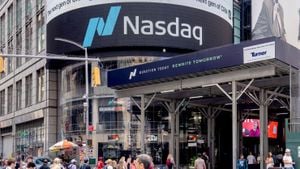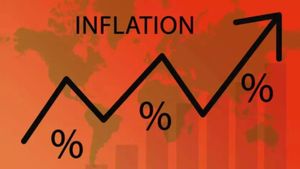The Biden administration has set its eyes on fortifying the United States' clean energy sector by imposing increased tariffs on imports of Chinese solar wafers and polysilicon, as well as certain tungsten products. This move, confirmed by the U.S. Trade Representative's office, aims to create barriers against what officials describe as "harmful" trade practices by China, which has been steadily gaining dominance over the solar market.
Starting January 1, 2025, the tariffs on solar wafers and polysilicon will escalate from 25% to 50%, and duties on tungsten imports will climb from zero to 25%. According to U.S. Trade Representative Katharine Tai, these changes are part of the broader strategy to bolster domestic energy production and safeguard U.S. industries from unfair competition. Tai emphasized the importance of these tariffs as tools to facilitate domestic investments and shoring up supply chain vulnerabilities.
These tariff increases come on the heels of heightened U.S.-China trade tensions. Just last week, the United States tightened its chokehold on Chinese access to advanced technology, particularly semiconductors—a move met with retaliatory bans from China on exports of key minerals such as gallium and germanium. These minerals are particularly important for the production of computer chips and other high-tech applications, including military innovations.
Looking back at these trade dynamics, one must acknowledge China’s current position—a whopping 80% market share for solar panels at every stage of production, as noted by the International Energy Agency. The rise of Chinese solar manufacturers, supported by sizable government subsidies, has resulted not just in affordable solar products globally, but also significant imbalances within international trade. U.S. officials argue these subsidies give Chinese manufacturers undue advantages, perpetuating reliance on foreign supply chains.
Industry leaders and analysts see the tariff hikes as necessary steps toward rectifying this imbalance. "It’s imperative for the health of our clean energy goals and for achieving climate targets," stated clean energy advocates. The public debate surrounding the tariffs has featured mixed responses; some argue these tariffs are long overdue, citing national security threats, whereas others worry about inflationary pressures and rising production costs as the trade war heats up.
Tariffs have long been a tool for the United States; they were significantly elevated during the Trump administration, with the initial 30% tariff on solar panels put forth back in 2018. The motives behind such financial barriers tend to be quite consistent—protecting domestic markets from what the U.S. believes are illicit trade practices by foreign nations. The overarching goal is to persuade domestic investors to shift their production efforts back home.
Looking at the specifics, the U.S. plans to implement these tariffs on subheadings related to tungsten products, which include unwrought tungsten and various bars and rods. These materials are incredibly significant, often utilized across aerospace, defense, and medical sectors—industries where dependency on single foreign suppliers could pose existential risks to national security.
The political backdrop surrounding these tariffs unveils another layer of complexity. Trade negotiations between the U.S. and China remain fraught with tension as both navigate multiple economic fronts. Chinese officials have expressed strong disapproval of the U.S. trade policies, labeling them as unfounded and politically motivated. The recent announcement by the Chinese Commerce Ministry, asserting their intent to take necessary measures to protect their enterprises, hints at potential countermeasures against U.S. tariffs. The broader perspective here shows the market volatility as U.S. importers hasten shipments before the tariffs take effect, leading to record-high import volumes.
Support for these tariffs overwhelmingly leans toward national security and economic stability, according to public statements from U.S. officials. The increasing alarm over reliance on imports—particularly from adversarial nations—further stokes the fires of this contentious issue. One of the fundamental reasons for stepping up this tariff action is to pave the way for localized supply chains and job growth domestic to the United States.
Yet, as tariffs escalate, speculation surrounding market re-alignments grows. Some analysts anticipate shifts within the international marketplace, where suppliers may seek alternative routes to avoid hefty tariffs. Countries like South Korea, seen by many as prime candidates to step up production, could potentially see increased business dealings with U.S. firms seeking to navigate around trade restrictions.
This long-standing trade crisis raises important questions: Will these tariffs successfully stimulate the U.S. clean energy market, or will they backfire and lead to costlier products for American consumers? Further, what kind of resilience can policymakers find within domestic systems to counteract these external pressures? The U.S. administration has pledged to monitor the outcomes of these tariffs actively, tweaking them as necessity dictates as they progress.
All things considered, the upcoming tariff hikes on Chinese solar wafers, polysilicon, and tungsten products represent more than just economic adjustments; they are pivotal moments within the larger scope of U.S.-China relations, encapsulating both countries' ambitions to lead the global clean energy narrative. While short-term price increases are likely, the target of these measures is much broader—namely, constructing resilient domestic markets, safeguarding industrial capabilities, and reinforcing U.S. standing as a competitive force across global industries.



